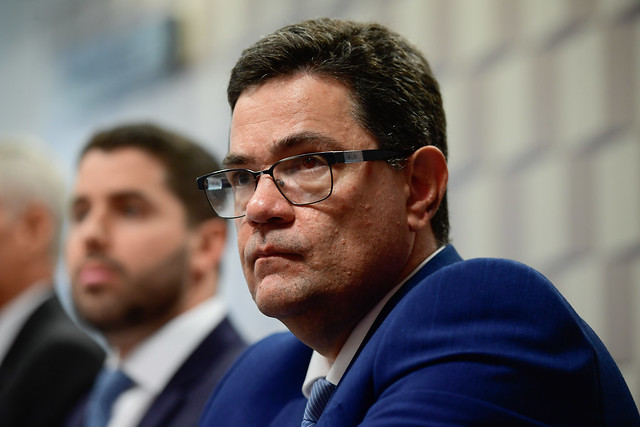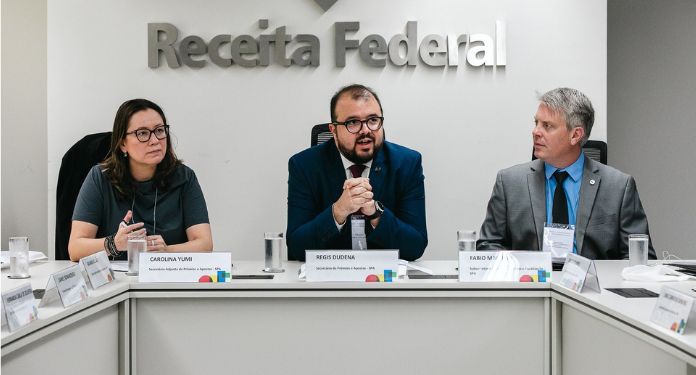The Treasury Department’s Prizes and Betting Secretariat (SPA-MF) has notified 33 financial and payment institutions due to the processing of transactions linked to unauthorized bets. For this reason, each entity may receive a fine of up to R$2 billion.
These institutions must provide clarifications to the Secretariat within 10 days. If the investigation proves bad faith or the absence of measures to prevent irregular operations, the agency will initiate administrative proceedings and may impose official fines.
SPA did not reveal which institutions are involved. ABFintech, representing part of the sector, stated that there is consensus on the legal commitment. According to the entity, “there is a consensus in the market that betting platforms should exclusively contract duly regulated financial or payment institutions”.
The Brazilian Federation of Banks (Febraban) sent a note highlighting the entity’s concern with the “social and economic aspects” of games, such as the risk of increased individualization.
Rules for reporting suspicious betting transactions
In March, the SPA adopted an ordinance requiring payment institutions to report any suspicious activity related to betting. Whenever there are indications of unauthorized operations, the responsible body must receive a notification within 24 hours after detecting the irregularity.
The report submitted to the Secretariat must indicate the specific reasons for the suspicion and provide detailed information about the payment or deposit account of the suspected operator. The institution includes the National Registry of Legal Entities (CNPJ), the company’s corporate name, the start date of the relationship and, if applicable, the associated Pix key.
This ordinance also prevents institutions from maintaining accounts for betting companies without official authorization from the Ministry of Finance. In addition, deposits or transfers of prizes into these accounts are not permitted.
Pay4Fun Director talks about websites disconnected from the platform
In the fintech sector, the new rule resulted in the large-scale removal of unauthorized platforms. At Pay4Fun, which serves around 30 authorized platforms, more than 600 sites were disconnected.

Leonardo Baptista, the company’s CEO, explained: “The company conducts a documentary survey on the websites that request the company’s services. As soon as the financial services provider is contacted by a platform, it conducts a process known as KYM, an acronym for ‘know your merchant’. With this, we check the SPA’s license to see if the company is listed as one of the companies authorized to operate in the country.”
The crackdown on irregular platforms began on January 1st of this year, the date the regulation of the segment came into effect.
The representative of the Brazilian Institute of Responsible Gambling (IBJR), Fernando Vieira, said: “The legal framework is positive and works well, but the illegal market continues to be a challenge to be overcome”. The association represents the authorized houses in the country. According to the association, 75% of the Brazilian betting market is regulated.
The IBJR also points out that around 50% of the sector still operates without regulation. The entity considers the “strangulation of financial operations” crucial to address the problem. Vieira pointed out: “There is still a very large regulation of illegal betting sites.
So, where is the mechanism that we understand and have been working on to try to stifle this illegal market? It is through financial delivery, because any bet, to be completed, will require a financial transaction, a Pix”.
IBJR complaints and blocking of illegal betting sites
In order to curb irregular practices, the IBJR sends reports with complaints to the Prizes and Betting Department every two weeks. Vieira said: “The complaints are not only about illegal websites and operators, but also about the financial transactions behind these illegal bets.”

The IBJR has already filed around 150 complaints with the federal agency. Based on this information, the expectation is that the SPA and the Central Bank will work together to “stifle illegal operations.” Vieira says that this action will result in the structuring of a safer market. He believes that “consumers will be directed to the legal market, which is where Brazilian regulations provide many protection mechanisms.”
Between October 2024 and May 2025, the secretariat ordered the blocking of around 13,000 unauthorized betting sites in Brazilian territory. The Ministry of Finance is currently analyzing 36 requests from companies that wish to operate fixed-odds bets.
Each operator can register up to three domains under its license. According to the SPA, two companies obtained two licenses each, paying R$60 million for the exploitation of up to six brands.
To secure the definitive license, the company is required to pay R$30 million in advance for the license. After the companies were regularized through an administrative act of the SPA, the government collected R$2.16 billion in royalties.




